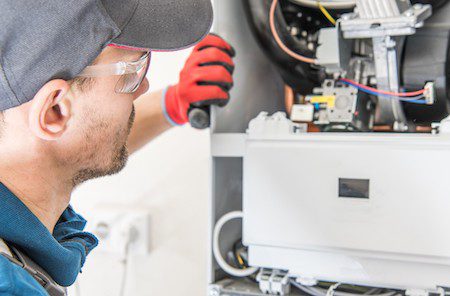
The Hidden Costs of an Outdated HVAC System
At first glance, replacing an outdated HVAC system might seem like a significant expense. However, what many homeowners don’t realize is that maintaining an old system can often be more costly in the long run. In this blog, we’ll delve into the hidden costs associated with outdated HVAC systems, compare them with modern alternatives, and provide guidance on recognizing when it’s time to upgrade.
High Energy Consumption
One of the most significant drawbacks of an outdated HVAC system is its inefficiency in energy use. Older systems generally operate at lower efficiency levels compared to newer models, leading to higher energy consumption and, consequently, increased utility bills. According to a study by the Department of Energy, upgrading to an energy-efficient system can save homeowners up to 20% on heating and cooling costs.
Poor Air Quality and Potential Health Risks
Outdated HVAC systems struggle to filter and circulate air effectively, often leading to poor indoor air quality. This can exacerbate allergies, asthma, and other respiratory conditions. Modern HVAC systems come equipped with advanced filtration technologies that not only enhance air quality but also reduce the potential health risks associated with indoor air pollutants.
Frequent Repairs and Maintenance Costs
As HVAC systems age, they tend to require more frequent repairs. These costs can add up over time, making it financially impractical to keep an old system running. Newer HVAC models are more reliable and come with longer warranties, reducing the need for frequent repairs and maintenance.
Inconsistent Temperatures and Comfort Levels
Older HVAC systems often struggle to maintain consistent temperatures, leading to uneven heating or cooling in different areas of the home. This inconsistency can affect comfort levels and may indicate that your system is working overtime to compensate for its inefficiencies, further increasing operational costs.
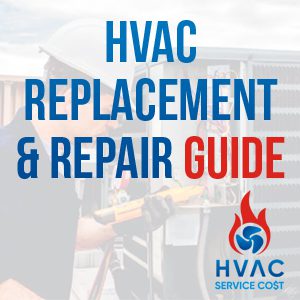
Identifying When to Upgrade Your HVAC System
Recognizing the signs of an inefficient HVAC system is crucial. These signs include noticeable increases in energy bills, frequent repairs, inconsistent temperatures, and the age of the system (typically systems over 15 years old are considered outdated). Additionally, if your system uses R-22 refrigerant (which is being phased out due to environmental concerns), it’s time to consider an upgrade. Knowing when to upgrade your HVAC system can save you from unnecessary expenses and discomfort. An outdated system not only affects your home’s air quality and temperature control but also leads to increased energy bills and potential safety risks. Here are some telltale signs indicating that it might be time to consider upgrading your HVAC system:
Age of the System
The age of your HVAC system is a crucial factor. Most systems have a lifespan of about 15-20 years. If your system is approaching or has surpassed this age range, it’s likely time to start considering an upgrade. Older systems tend to be less efficient and more prone to breakdowns.
Rising Energy Bills
An obvious sign that your HVAC system may need upgrading is a consistent increase in your energy bills. Older or malfunctioning systems have to work harder to heat or cool your home, leading to higher energy consumption. If you notice a significant and unexplained increase in your utility bills, it could be due to an inefficient HVAC system.
Frequent Repairs
If you find yourself constantly calling for repairs, this is a clear indication that your HVAC system is failing. Frequent HVAC repairs can be costly and are often a sign that the system is nearing the end of its useful life. Investing in a new system can be more cost-effective in the long run compared to the continual expense of fixing an old one.
Inconsistent Heating or Cooling
An aging or malfunctioning HVAC system may struggle to maintain consistent temperatures throughout your home. If you notice some rooms are too hot while others are too cold, or if the system can’t seem to keep up with temperature settings, it’s a sign that your system is losing its efficiency.
Strange Noises or Smells
Unusual noises such as grinding, banging, or squealing from your HVAC system can indicate mechanical issues. Similarly, unusual smells like a burning odor when the system is running can signal serious problems. These issues should prompt an immediate inspection and potentially an upgrade.
Poor Air Quality
Older HVAC systems can contribute to poor indoor air quality. Signs include an increase in dust accumulation, musty odors, or humidity issues. If you or your family members are experiencing more allergies or respiratory issues while indoors, it could be due to an outdated HVAC system failing to filter air properly.
Use of R-22 Refrigerant
If your system uses R-22 refrigerant (also known as Freon), it’s definitely time to upgrade. R-22 is being phased out due to its harmful environmental effects. Newer systems use more environmentally friendly and efficient refrigerants.
Difficulty in Finding Replacement Parts
As HVAC systems age, finding replacement parts can become more challenging and expensive. This is especially true for systems that are no longer in production. If parts are hard to find or overly expensive, upgrading to a new system may be a more practical option.
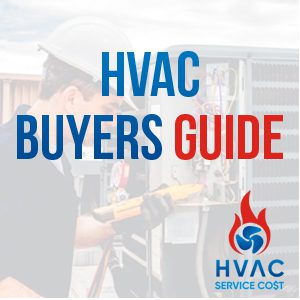
An efficient and reliable HVAC system is essential for the comfort, health, and safety of your home. By being aware of these telltale signs, you can make an informed decision on when to upgrade your system. Remember, a modern, energy-efficient HVAC system is not just an investment in your home’s comfort; it’s also an investment in your home’s value and your family’s well-being. If you’re experiencing any of these signs, it may be time to consult with a professional to discuss your options for an upgrade.
Advancements in Modern HVAC Systems
In recent years, the HVAC industry has seen significant technological advancements, leading to systems that are more efficient, environmentally friendly, and user-friendly. These innovations not only enhance home comfort but also offer long-term savings and contribute to a healthier living environment. Let’s explore some of these advancements in modern HVAC systems and how they impact homeowners.
- High-Efficiency Systems: Modern HVAC systems are designed with energy efficiency at their core. They often come with high Seasonal Energy Efficiency Ratios (SEER) and improved Annual Fuel Utilization Efficiency (AFUE) ratings. High-efficiency systems use less energy to cool or heat your home, resulting in lower utility bills and reduced environmental impact.
- Smart Thermostat Integration: One of the most significant advancements is the integration of smart thermostats. These devices allow homeowners to control their HVAC systems remotely via smartphones or other devices. Smart thermostats learn your habits and adjust temperatures accordingly, leading to enhanced comfort and energy savings. They also provide valuable data on your energy usage, helping you make more informed decisions about your heating and cooling.
- Variable Speed Technology: Modern HVAC systems are equipped with variable speed compressors and fans. Unlike traditional systems that operate at full capacity all the time, variable speed technology allows the system to adjust its output based on the current need. This results in better temperature control, reduced energy usage, and quieter operation.
- Improved Air Filtration and Purification: Advances in air filtration and purification technology have greatly improved indoor air quality. Modern systems come with HEPA filters, UV lights, and other air purification features that remove pollutants, allergens, and pathogens from the air. This is especially beneficial for individuals with allergies or respiratory issues.
- Environmentally Friendly Refrigerants: Today’s HVAC systems use refrigerants that are less harmful to the environment. The shift from traditional refrigerants like R-22 to more eco-friendly options reduces the ecological footprint of these systems, aligning with global efforts to combat climate change.
- Zoning Systems: Zoning systems in modern HVAC units allow different areas of the home to be heated or cooled to different temperatures. This not only enhances individual comfort but also reduces energy waste, as unused areas can be set to use less heating or cooling.
- Ductless Systems: Ductless HVAC systems, also known as mini-split systems, provide a flexible solution for heating and cooling. These systems do not require ductwork, making them ideal for older homes or room additions. They offer efficient temperature control and can result in significant energy savings.
- Integration with Home Automation: Modern HVAC systems can be integrated with home automation systems, providing centralized control over various home systems. This integration offers convenience and can further improve energy efficiency.
The advancements in modern HVAC systems offer a range of benefits to homeowners. From increased energy efficiency and improved indoor air quality to enhanced user control and environmental sustainability, these modern systems are reshaping how we think about home heating and cooling. For homeowners considering an upgrade, these advancements provide compelling reasons to invest in a modern HVAC system, ensuring a more comfortable, healthier, and cost-effective living environment.
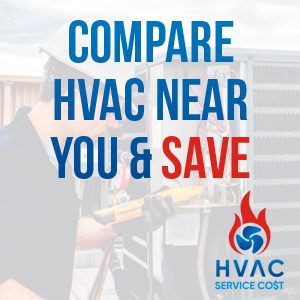
Long-Term Cost Savings and Environmental Benefits
While the upfront cost of a new HVAC system can be substantial, the long-term savings are significant. Modern systems are not only more energy-efficient but also have a longer lifespan, reducing the need for replacements. Furthermore, by consuming less energy, these systems have a smaller carbon footprint, contributing to environmental sustainability.
Can Outdated HVAC Systems Be a Health Hazard?
When considering the functionality and efficiency of an HVAC system, one aspect that often gets overlooked is its impact on health. The truth is, outdated HVAC systems can pose several health hazards to the occupants of a home. Understanding these risks is crucial for homeowners to make informed decisions about maintaining or upgrading their systems.
Air Quality Concerns
Older HVAC systems may contribute to poor indoor air quality, which can have various health implications. Here’s how:
- Dust and Allergens: Inefficient or old filters in an HVAC system can fail to trap dust, pollen, and other allergens effectively. This can lead to increased levels of allergens in the air, aggravating conditions like asthma, allergies, and other respiratory issues.
- Mold Growth: Outdated systems might have moisture accumulation issues, which can lead to mold growth. Mold spores in the air can cause allergic reactions, respiratory problems, and in severe cases, more significant health issues, especially in individuals with weakened immune systems.
- Poor Ventilation: Older HVAC systems may not ventilate properly, leading to a buildup of indoor pollutants. Good ventilation is crucial for diluting indoor pollutants and supplying fresh outdoor air.
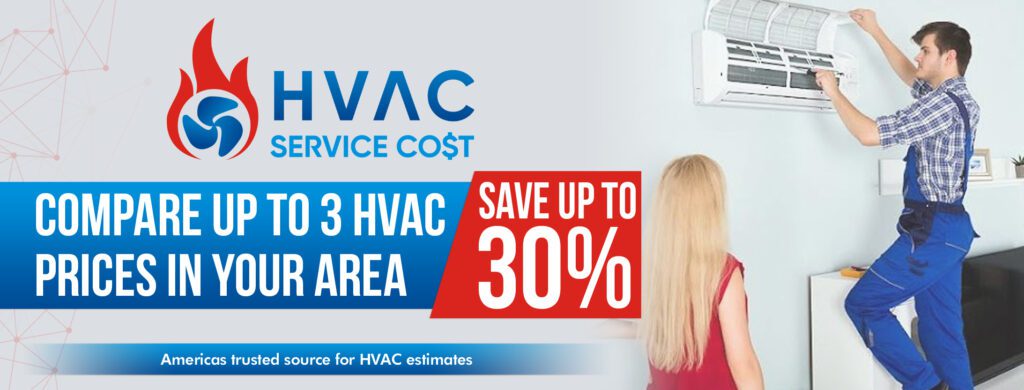
Carbon Monoxide Risks
For HVAC systems that rely on combustion (like gas furnaces), there’s a risk of carbon monoxide (CO) leakage with older or malfunctioning units. Carbon monoxide is a colorless, odorless gas that can be fatal at high levels. Symptoms of CO poisoning include headaches, dizziness, nausea, and in severe cases, it can be life-threatening.
Increased Risk of Infections
Air conditioning systems, particularly older or poorly maintained ones, can become breeding grounds for bacteria and viruses. This can be a concern in spreading illnesses, especially in households with vulnerable individuals.
Chemical Exposure
Older HVAC systems might use refrigerants that are now known to be harmful to health and the environment. Leakage of such refrigerants can lead to exposure to chemicals that may be harmful if inhaled.
How to Mitigate These Health Risks
- Regular Maintenance: Ensure your HVAC system is serviced regularly by a professional. This includes cleaning, filter changes, and checks for any potential issues like mold growth or CO leaks.
- Upgrade Filters: Consider upgrading to high-efficiency particulate air (HEPA) filters, which can capture smaller particles and improve indoor air quality.
- Install Carbon Monoxide Detectors: For systems that involve combustion, install CO detectors in your home to alert you to any leakage.
- Consider an Upgrade: If your HVAC system is outdated and showing signs of serious wear, upgrading to a newer, more efficient model can significantly reduce these health risks.
While often underestimated, the health implications of an outdated HVAC system are significant. Poor air quality, the potential for mold growth, carbon monoxide risks, and chemical exposure are serious concerns. Regular maintenance and timely upgrades are key to ensuring your HVAC system is not only efficient but also safe for your home’s occupants. Investing in a modern HVAC system can provide peace of mind, knowing that your home environment is safe, healthy, and comfortable.
The hidden costs of an outdated HVAC system can be substantial, affecting not only your wallet but also your health and comfort. Upgrading to a modern system, although an initial investment, can lead to significant savings in the long run, both financially and environmentally. As technology advances, the benefits of modern HVAC systems continue to grow, making them a wise choice for homeowners seeking efficiency, comfort, and sustainability. If you’re experiencing signs that your HVAC system might be outdated, consider consulting with a professional to evaluate your options and potentially make the switch to a more efficient and cost-effective system.
COMPARE QUOTES NOW


Leave a Reply